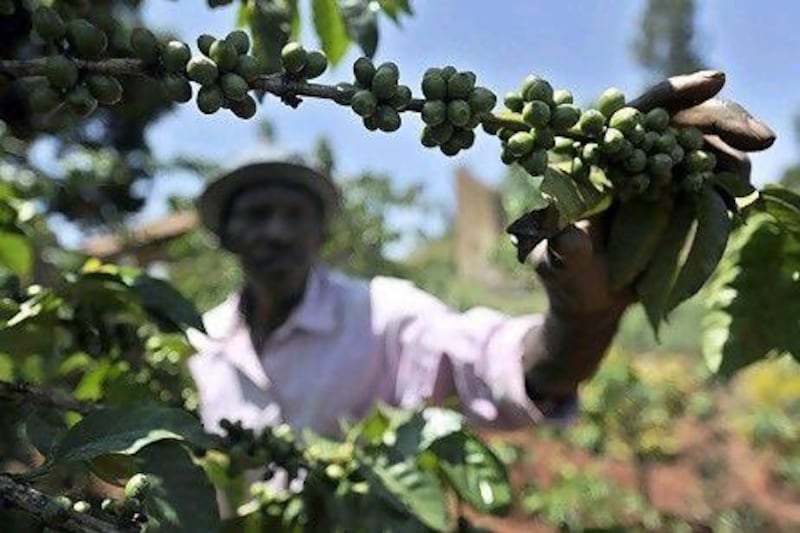Arabica coffee futures for March remained under pressure after hitting US$1.4945, the lowest level for the second month since June 2010, weighed down by forecasts of bumper output.
Dealers said the robusta market was expecting a large crop in Vietnam, albeit slightly smaller than last year.
The brokers Marex Spectron said the consensus was that the crop would be unchanged to 10 per cent lower than last year's 27 million bags, with the average at down 5 per cent.
Prices were down 0.55 cent, or 0.36 per cent, at $1.522 per lb at the close in London on Friday.
"The current arabica supply picture is comfortable and stocks are building," Marex Spectron said on Thursday, adding that a large Brazilian crop had allowed for restocking internally as well as exports.
"We favour arabica over robusta and expect the arabica market to improve given sharply lower prices, although an improved harvest in Brazil is likely to cap the upside," Standard Chartered said.
January robusta futures were up a marginal $3 at $1,905 a tonne after earlier dipping to $1,891.
Next year's coffee yield is likely to be bountiful, with Peru's crop expected to rise by 20 per cent.
Lower prices could send income from coffee exports down to $950 million, down by as much as 40 per cent from $1.57 billion.
This supply glut is already being felt in the commodity futures market.
Weak European demand will also probably contribute to lower coffee bean prices. Cafes in Europe are struggling to turn a profit as the weak EU economy has reduced disposable incomes.
Europeans are switching to cheaper, lower-quality coffees in response to these challenges.
Gourmet arabica coffee is preferred, but now Europeans are switching to robusta, a bitter but less costly alternative. This trend has worldwide consequences, since Europe has the greatest coffee consumption per person.
The spot price of arabica beans has fallen about 30 per cent because of the switch to robusta.
The downwards revisions for Vietnam's forecast production of robusta beans may continue to narrow the spread between these two beans.






